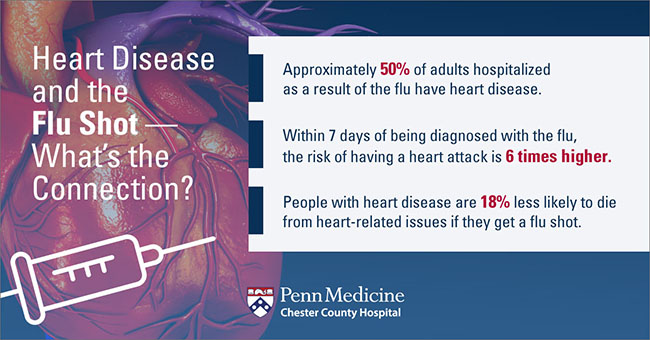
For many, February is a time of love. We associate this month with Valentine’s Day and all the heart-shaped celebrations that come with it.
Whether you go out for a romantic dinner with your significant other or host a "Galentine’s Day" party with your best girlfriends, love is in the air. But while February is typically a time of showing the people in your life that you love them, it's also a good idea to turn that love inwards.
February is American Heart Month — a great time to focus on living a more heart-friendly lifestyle. From small daily substitutions to big lifestyle changes, your heart will be sure to thank you.
There are many things you can do every day to improve your heart health, but here are 4 that might surprise you
1. Have a Primary Care Provider
Your annual wellness visit might just be something you check off your yearly to-do list — but in reality, it can have a huge impact on early detection of heart-related diseases.
"There are two important things your primary care provider is paying attention to when it comes to early detection and prevention of heart health concerns," says Agnes Friedberg, BSN, RN, CCRN-A, a Heart and Vascular Nurse Navigator at Chester County Hospital. "That’s your blood pressure and your cholesterol levels."
Blood pressure is key because high blood pressure can increase your risk for a heart attack, stroke, or heart failure. And by understanding your cholesterol levels, your doctor can help identify any needed medications or changes that can help reduce your risk for a stroke or heart disease.
Your primary care provider will also ask you questions about your diet, fitness, smoking habits, and lifestyle that can help them identify any risk factors for heart disease. Your primary care provider should be a consistent part of your overall heart health journey.
2. Get Your Flu Shot
As the weather gets colder, we bundle up in warm clothes to fight the cold — and we also get an annual shot to fight the flu.
Getting your yearly flu shot is the best defense against catching the flu, but it can also be connected to heart health, too.

If you have been diagnosed with heart disease or have had a stroke, getting your flu shot can help you avoid serious flu-related complications — as well as heart-related complications.
3. Brush and Floss Your Teeth
Everyone knows that brushing and flossing are good for your teeth. You probably hear that from your dentist — but you might not expect to hear it from your primary care provider as well.
"It’s not uncommon that you might be visiting your dentist (twice a year) more often than your primary care provider (once a year for your annual wellness check)," says Kristin Taylor, BSN, RN, PCCN, CV-BC, a Nurse Navigator at Chester County Hospital. "It’s helpful to know that your oral health can also have an impact on your overall health as well."
Good oral health can help prevent gum disease which is caused by not effectively brushing and flossing your teeth — leading to plaque build-up. Gum disease is actually associated with a higher risk for stroke and heart disease.
As a good habit for both your gum and heart health, brush your teeth twice a day and floss once a day.
4. Eat These Heart-Healthy Foods
There are many heart-healthy foods that you might be familiar with. Vegetables, whole grains, and fish often grace lists of "foods to eat for better heart health". But there are many other foods that have heart health benefits, too.
Here are good for your heart foods and drinks to include in your diet:
- Nuts: If you're looking for a snack that can be sweet, salty and fit in your pocket, then nuts are a great heart-healthy option. Peanuts, walnuts, almonds, hazelnuts, pistachios and pecans are all packed with protein, fiber and fats.
- Sweet Potatoes: Sweet potatoes are high in fiber and vitamin A. They are full of flavor and can be a good substitute for traditional potatoes. You can even turn them into heart-healthy nachos for game day!
- Black And Green Tea: If you're looking for a drink with heart benefits, unsweetened black or green tea is a great choice. Recent studies have shown that drinking tea can help with weight control and boost "good" cholesterol — both of which can help lower your risk for heart disease.
A Little Goes a Long Way
Your heart works hard to keep you healthy every day. Whether you’re running a mile or sitting at your desk, your heart makes all of that possible.
Since your heart is doing so much work day-in and day-out, it's never a bad idea to pay it a little more attention — and it's never too late either.
This American Heart Month, make heart health a priority!
Chester County Hospital is here to support you in your heart health journey. Contact your primary care provider today to talk about a more heart-healthy lifestyle.